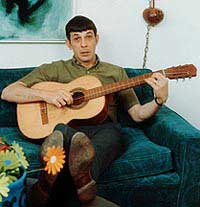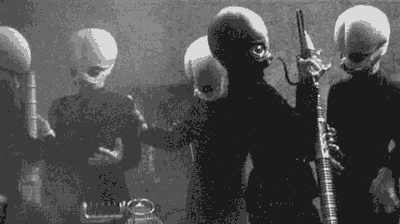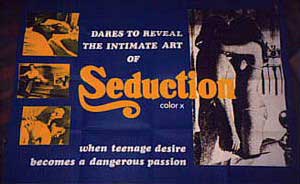Part of the Countdown to Pocket Symphony Series
- Air – Premiers Symptomes: Like in a lounge on the Moon
- Air – Moon Safari: A lunar adventure
- Air – The Virgin Suicides: Downtempo tension
- Air – 10000 Hz Legend: Frustrating Brilliance
- Air – Talkie Walkie: Mellow Exuberance
- Air – Pocket Symphony: A Little Side Step
Air [french band]’s first album in three years, Pocket Symphony, will be released in a handful of days. In preparation for that event, I thought it would be fun to take a trip through the French band’s back catalogue, starting with their earliest works, which range from the 1996 early singles to 1997’s debut album Premiers Symptomes.
::
Imagine it’s 1969 and your thoughts are aimed toward the future. Not your own personal future, but the future of mankind. Think thirty years or so, to that far off time known as 1999. In your mid-century mind, you picture the fantastic possibility that the frontier of human exploration lies beyond the Asteroid Belt and that people will be making regular trips into Earth orbit. You even think that the fringe of exotic vacations take place on the Moon, which is bustling with low-grav attractions. Swanky hotels, rover expeditions, high-jumping sports, perhaps a theme park and a casino (with blackjack of course).
In the evenings, after a day of enjoying all the leisure activities that the Moon has to offer, people gather in the Lunar Lounges to sip cocktails and make sophisticated conversation about how groovy it is to be on the Moon. As you picture all this, you hear an equally sophisticated music accompanying the chatter. In your head, it’s laid back and jazzy smooth with dreamy sparkling Mellotron melodies, which is of course the way music will sound in thirty years’ time…
That scene pretty much sums up the aura that surrounds Air’s early years, especially Premiers Symptomes. At just 5 songs and 27 minutes long, the record is short on length, but makes up for it by packing much groove. It’s nearly half an hour of perfectly sublime music. And the notion of being a spaced-out futuristic jazz ensemble on the Moon is epitomized with the album’s third song: Les Professionnels, which astute listeners will recognize as a proto-version of All I Need from Moon Safari.
Compared to the band’s later works, Premiers Symptomes’ songs are much simpler in form. There is less complex layering of sounds and the arrangements are more straight-forward. But it does a very good job of establishing Air’s distinct sound.
The 1999 re-release features two additional tracks Californie and Brakes On, which some people claim ruin the mood of the album. I can see their point, because those songs are as close to rock as Air has ever gotten and they do tend to take away from the disc’s ethereal atmosphere. But hey, it’s Air and despite being oddballs in the catalogue, those songs are pretty good. Brakes On, in particular, might make that late-60s futurist think, instead, of a discotheque on the Moon.
If you’re unfamiliar with Premiers Symptomes, check out the video for one its singles, Le soleil est pres de moi. It’s got nothing to do with the Moon, however:
Les Professionels
[audio:0702223LesProfessionnels.mp3]
Rating: 









7.9 / 10




